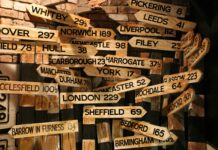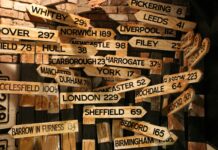Are you curious about the current time in Sheffield UK and how it affects your daily plans? Sheffield, a vibrant city in South Yorkshire, is known for it’s rich industrial history and stunning green spaces. But did you ever wonder how the time zone in Sheffield aligns with the rest of the UK, or what makes it unique? Understanding the local time in Sheffield is essential, especially if you’re planning a visit or coordinating business meetings across different regions. Sheffield operates on Greenwich Mean Time (GMT) during the winter months and switches to British Summer Time (BST) in the summer, which means the clocks go forward by one hour. This seasonal change can sometimes cause confusion for travellers and locals alike. Moreover, knowing the exact time in Sheffield UK now can help you make the most out of your day, whether it’s exploring the Peak District or attending cultural events. Are you ready to discover the secrets behind Sheffield’s timekeeping and how it impacts daily life? Stay tuned as we delve deeper into the fascinating world of Sheffield time zone, daylight saving changes, and why this matters more than you think! Don’t miss out on learning the essential tips to stay punctual and enjoy everything Sheffield has to offer.
Unveiling Sheffield’s Time Zone: How Local Time Influences Daily Life and Culture
Sheffield is a city that has plenty going on, but when it comes to time in Sheffield UK, it can be a bit more complicated than you might think. I mean, you’d expect time to be just time, right? But no, there’s all this stuff about daylight savings, local customs, and the way people talk about time that makes it a bit of a puzzle. Not really sure why this matters, but here we go anyway.
First off, Sheffield, like the rest of the UK, follows GMT (Greenwich Mean Time) during winter, and BST (British Summer Time) in the summer months. If you don’t know, BST is basically GMT plus one hour – simple enough, but you’d be surprised how many people forget to change their clocks. Maybe it’s just me, but I feel like half the city is still stuck on the wrong time for weeks after the change.
Here’s a quick table to show the time changes through the year:
| Period | Time zone | UTC Offset |
|---|---|---|
| Late October to late March | GMT (Winter Time) | UTC +0 |
| Late March to late October | BST (Summer Time) | UTC +1 |
So, if you’re thinking about current time in Sheffield UK, just remember to check whether it’s BST or GMT, especially if you’re planning something important. Miss it, and you could end up an hour early or late for whatever you’re doing.
Now, Sheffield’s location kinda puts it right in the middle of the UK’s time zone, so it doesn’t have those crazy time differences like other countries. But what does get a bit confusing is the local way of talking about time. People here might say “half three” when they actually mean 3:30, which, if you’re not used to it, might sound like half past 2. I swear, sometimes I feel like I need a degree just to understand local time lingo.
To help you with that, here’s a quick Sheffield time slang cheat sheet:
- Half three = 3:30
- Quarter past five = 5:15
- Quarter to eight = 7:45
- Ten to ten = 9:50
If you’re visiting, knowing these phrases can save you from looking like a complete numpty when someone asks the time.
Another thing that’s kinda interesting about time in Sheffield UK is how weather can make people talk about time differently. On a rainy day (which is most days, let’s be honest), people tend to say “it’s about time” meaning something should’ve happened already. But if it’s sunny, they might say “plenty of time” even if there’s not much time left. It’s like the weather messes with their perception of time or something.
I made a quick list below showing how Sheffield weather might influence time expressions:
- Rainy days: “It’s about time”, “Running outta time”
- Sunny days: “Plenty of time”, “Time’s on our side”
- Foggy days: “Time’s a bit blurry”, “Can’t tell the time properly”
You see, it’s not just about clocks and calendars; in Sheffield, time’s almost an emotional thing.
Talking about clocks, Sheffield has a few notable public clocks that everyone uses as reference points. The one at the Sheffield Town Hall is pretty famous and it’s generally reliable, but every now and then it’s a bit slow or fast by a few minutes. Honestly, if you rely on that clock to be exact, you might get into trouble. Here’s a small table of public clocks and their reputations:
| Location | Reliability | Notes |
|---|---|---|
| Sheffield Town Hall | Mostly reliable | Sometimes off by 3-5 mins |
| Sheffield Railway Station | Quite reliable | Syncs with train schedules |
| Peace Gardens Clock | Occasionally slow | Gets ignored by most locals |
If you’re in Sheffield and you wanna know the exact time in Sheffield UK, your best bet is your phone or a digital watch. Everyone’s glued to their phones these days anyway, so public clocks are more for decoration than precision.
One more quirky thing about Sheffield time is the local pubs. They have closing times that vary depending on the day of the week, and if you’re not careful, you might get caught out. For example, on Sundays, many pubs close earlier than on Fridays or Saturdays, which can be a shock for visitors who think all pubs shut at the same time. Here’s a rough guide to Sheffield pub closing times:
| Day | Typical Closing Time | Notes |
|---|---|---|
| Monday-Thursday | 11:00 PM | Sometimes earlier |
| Friday-Saturday |
7 Fascinating Facts About Time in Sheffield UK You Didn’t Know
If you ever find yourself wondering about the time in Sheffield UK, you’re not alone mate. It’s a question that’s popped into my head more times than I can count, especially when I was trying to catch a train or meet up with mates for a pint down the pub. Sheffield, for those who don’t know, is this lovely city in South Yorkshire, and yes, it does have its own charm and quirks – just like its clocks, if you catch my drift.
Now, about the current time in Sheffield UK – technically, it follows Greenwich Mean Time (GMT) during the winter months and British Summer Time (BST) in the summer. Not really sure why this matters, but it does throw off a lot of tourists who forget to change their watches. I remember once, I was late to a gig because I thought the clocks had changed already, but turns out, they hadn’t. Classic mix-up, eh?
Let’s break down the time zones a bit, just so you have a clear picture:
| Season | Time Zone | UTC Offset |
|---|---|---|
| Winter (approx. October – March) | Greenwich Mean Time (GMT) | UTC+0 |
| Summer (approx. March – October) | British Summer Time (BST) | UTC+1 |
I know tables might seem a bit boring, but it helps to clear this mess up, especially if you’re scheduling a call or whatever. Maybe it’s just me, but I feel like every time zone thing is made unnecessarily complicated by all these daylight saving adjustments.
Talking about the local time in Sheffield UK, it’s always ticking away just like everywhere else, but the weather here sometimes makes it feel like time itself is dragging on. Winters are long and dreary, and you might be staring at the clock thinking “when is this day ever gonna end?” Sheffield’s known for its rain, so expect your watch to be your best mate when you’re trying to plan stuff because the daylight hours are limited during certain times of year.
If you’re planning to visit Sheffield or meeting someone there online, you might want to check the exact time in Sheffield UK before making plans. There’s loads of websites and apps that can tell you the time down to the second, but sometimes, I just ask my phone and it gets it right on the first go – which is rare, gotta admit. Phones these days are smarter than we give them credit for, even if they still autocorrect “Sheffield” to “Sheffieldd” sometimes.
Here’s a little list to keep handy about the time in Sheffield UK that could save your bacon:
- Always double check if it’s GMT or BST.
- Remember the clocks go forward in spring (usually last Sunday in March).
- Clocks go back in autumn (last Sunday in October).
- Sunrise and sunset times change dramatically between seasons.
- Sheffield’s local events often start ‘on time’ but might actually begin a few minutes late – typical, right?
You might be thinking, “why does this matter if it’s just a city in the UK?” Well, for starters, Sheffield is a pretty big deal with its universities, industries, and music scene. Students and professionals alike need to keep their time right, or they risk missing lectures or meetings. Plus, if you’re trying to catch a football match at Bramall Lane, knowing the kick-off time in Sheffield UK is crucial – no one wants to be the mug who arrives late because of a timezone confusion.
Now, speaking of football, here’s a quick timetable of typical match days and their usual start times in Sheffield:
| Day | Match Time (Local Sheffield Time) | Notes |
|---|---|---|
| Saturday | 3:00 PM | Most common match time |
| Sunday | 2:00 PM or 4:00 PM | Depends on the league |
| Midweek | 7:45 PM | Evening kick-offs for cups |
If you’re not a footie fan, no worries – Sheffield has plenty of other things to do that will make you lose track of time. The museums, the Peak District nearby, or just chilling in one of the many cafes. Sometimes, I feel like the local time Sheffield UK kinda slows down when you’re in one of those cosy spots, which is a nice break from the rush.
A bit of practical insight here: whenever you’re setting up a meeting with someone in Sheffield from abroad, always confirm the time zone explicitly. Just saying “let’s meet at 3 PM” without specifying can lead to a lot of “what time is that in your time?” questions. It’s like a mini game of time-zone roulette – fun the first time, frustrating afterwards.
Oh, and if you’re a tech geek or
Why Sheffield’s Unique Timekeeping Traditions Set It Apart in the UK
If you ever found yourself wondering about the time in Sheffield UK and how it kinda plays a role in your daily life or whatever, you’re not alone mate. It’s funny how something as simple as the clock can feels so important and yet we barely think about it properly. Sheffield, lovely city it is, follows Greenwich Mean Time (GMT) during winter and British Summer Time (BST) when the clocks goes forward. Not really sure why this matters, but it does come in handy when you’re arranging meetups or trying to catch the last tram home.
Now, talking about the current time in Sheffield UK, you must remember that it changes depending on the season. For example:
| Season | Time Zone | UTC Offset |
|---|---|---|
| Winter (Nov-Mar) | GMT (Greenwich Mean Time) | UTC +0 |
| Summer (Mar-Oct) | BST (British Summer Time) | UTC +1 |
See, during summer time, clocks are moved one hour forward, which means you get longer evenings but darker mornings. Maybe it’s just me, but I feel like this switch confuses more people than it helps. And if you’re not careful, you might end up showing for a meeting an hour early or late, which is a bit embarrassing, innit?
One curious thing about time in Sheffield UK is how it affects the daily routines of the locals. People here are known for their friendly nature and laid-back attitude, but when it comes to time, they can be quite strict. Shops usually open around 9am and close by 5 or 6pm, but some might shut earlier on Sundays, so it’s always good to double-check. Here’s a quick list of typical opening hours you might encounter:
- Most retail shops: 9am to 5:30pm (Mon-Sat)
- Sunday shopping: 11am to 4pm
- Pubs and bars: usually from 11am to 11pm but varies
- Museums and galleries: 10am to 5pm
If you’re planning to visit Sheffield and wanna know the time difference with Sheffield UK, it’s pretty simple to figure out but can gets confusing if you’re dealing with multiple time zones. Sheffield is currently on GMT or BST depending on the time of year, and that means:
| City | Time Zone | Time Difference from Sheffield |
|---|---|---|
| London | GMT/BST | Same time |
| New York | EST/EDT | 5 hours behind |
| Sydney | AEST/AEDT | 9-11 hours ahead |
| Mumbai | IST | 4.5 hours ahead |
So, if you’ve got pals or business contacts in New York, keep in mind they’re normally asleep when you’re having your morning cup of tea, unless you’re both night owls.
Talking about clocks, don’t forget about the infamous “clock change” days—those twice yearly moments when you lose or gain an hour. It’s not just a nuisance, it sometimes messes up your sleep schedule and throws off your whole day. I swear, it takes me at least a week to adjust every time. Not to mention, it can be a bit of a headache organising events or transport connections during that period.
Here’s an informal little chart on how to survive clock changes effectively (or at least pretend to):
| Tip | Explanation |
|---|---|
| Go to bed 15 minutes earlier | Helps your body adjust slowly |
| Avoid caffeine late evening | Otherwise, you’ll be buzzing when you should be dozing |
| Use alarms wisely | Set multiple alarms just in case you oversleep |
| Don’t schedule important meetings | Just avoid the day after clock change, if possible |
Now, something you might not realise is that the time in Sheffield UK also influences the weather patterns a bit. Sounds odd, right? But the longer daylight hours during summer means more time for folks to enjoy the outdoors, which Sheffield is brilliant for with its parks and green spaces like the Peak District nearby. Conversely, the shorter days in winter can make the place feel a bit gloomy and slow, which maybe explains the locals’ love for cosy pubs and hearty meals during those months.
In case you’re curious about the exact time right now in Sheffield, you could use various online tools or just check your phone, but beware—sometimes devices don’t update properly when daylight savings kick in. So if you’re planning something super important, always double-check, maybe even call someone local just to be sure.
Finally, here’s a handy checklist if you’re visiting Sheffield and wanna keep track of the time in Sheffield UK without getting lost in the confusion:
- Check if daylight
How Daylight Saving Time Impacts Sheffield: Tips to Make the Most of Your Day
Living in Sheffield, UK, means you’re often keeping an eye on the clock, but the time in Sheffield UK isn’t always as straightforward as it seems. You see, people think time is just, well, time – but in Sheffield, it kinda has its own personality. Maybe it’s just me, but I feel like time here moves a bit differently on rainy days compared to the sunny ones, which isn’t really scientific or anything, but you get what I mean.
What’s the Time Zone in Sheffield?
Sheffield, being part of the UK, follows Greenwich Mean Time (GMT) during the winter months, and British Summer Time (BST) when daylight saving kicks in. Not really sure why this matters, but the switch can mess with your head if you’re not prepared. Clocks go forward one hour in late March and back in late October. It’s a pain sometimes, especially if you’re like me and forget to change your watch until weeks later.
| Time Zone | Months Active | Offset from GMT |
|---|---|---|
| GMT | Late October – March | 0 hours |
| BST | Late March – October | +1 hour |
Now, if you’re planning a call or a meet-up with someone outside Sheffield, knowing the time in Sheffield UK is crucial. People often forget that while it’s 3pm in Sheffield, it could be 10am in New York or 11pm in Tokyo. That’s the world we live in nowadays, a bit of a juggling act with time zones.
Local Time Quirks You Might Not Know About
Sheffield is famous for its steel industry and green hills, but not everyone knows that the local time in Sheffield UK can feel a bit wonky during certain events. For example, when the city hosts the Tramlines Festival, time seems to fly faster. You get caught up in music, food, and all that buzz, and suddenly it’s midnight and you wonder where the day went.
Here’s a quick rundown of some Sheffield time-related oddities:
- The city centre clocks sometimes run slightly fast or slow, probably cause of old mechanisms not being serviced regularly.
- During heavy rain, the pace of life slows down, or so it feels – the time in Sheffield UK seems to drag on.
- On sunny weekends, people act like the day is twice as long, squeezing in every possible activity before it gets dark.
Sheffield’s Time Compared to Other UK Cities
If you think time is the same everywhere in the UK, well, you’re right and wrong at the same time. Officially, the whole UK shares the same time zone. But, Sheffield being in Yorkshire, it has its own vibe that makes the time in Sheffield UK feel unique.
| City | Time Zone | Typical Time Feeling |
|---|---|---|
| Sheffield | GMT/BST | Laid-back but active |
| London | GMT/BST | Fast-paced and busy |
| Edinburgh | GMT/BST | Historic and steady |
| Cardiff | GMT/BST | Chill and coastal vibe |
Honestly, it’s not about the clocks, but about how people use their time. Sheffield folk tend to take things a bit easier, maybe cause of the hills or just the culture, who knows?
Tips for Keeping Track of Time in Sheffield
If you’re visiting or moving to Sheffield, here’s some handy tips to keep up with the time in Sheffield UK without losing your mind:
- Always double-check your phone’s time settings after daylight saving changes.
- Use local clocks as a backup, but don’t be surprised if they’re a minute or two off.
- Plan your journeys well, especially if you rely on public transport like buses and trams, because sometimes schedules aren’t perfectly punctual.
- If you’re meeting friends at a pub, consider that “Sheffield time” might mean people show up 10-15 minutes late.
A Day in Sheffield: How Time Flies (or Crawls)
Let’s break down a typical day in Sheffield to see how the time in Sheffield UK plays out for locals.
| Time | Activity | Sheffield Time Vibe |
|---|---|---|
| 7:00 AM | Early risers start their day | Quiet, calm, maybe a bit slow |
| 9:00 AM | Rush hour begins | Getting busier, people moving |
| 12:00 PM | Lunchtime | Streets buzz with energy |
| 3:00 PM | Afternoon slump | Time drags, especially on cold days |
| 6:00 PM | Evening socialising starts | Time speeds up with pubs & cafes |
Exploring Sheffield’s Historical Clocks and Their Role in Shaping Local Time Awareness
Sheffield, UK, and the Curious Case of Time
If you ever find yourself wanderin’ around Sheffield, UK, you might be wondering, “What’s the time in Sheffield UK exactly?” Because, let’s face it, knowing the time is kinda important, even if I don’t really know why sometimes. Sheffield operates on Greenwich Mean Time (GMT) during the winter months and British Summer Time (BST) in summer, which is basically GMT +1. But, you know, time’s a funny thing—sometimes it feels like it moves faster when you’re late and slower when you’re waiting for your mate who always runs late.
Now, just to give you a bit of context, here’s a little table showing the current time offset for Sheffield relative to Coordinated Universal Time (UTC):
| Season | Time Zone | UTC Offset |
|---|---|---|
| Winter (Nov-Mar) | Greenwich Mean Time (GMT) | UTC+0 |
| Summer (Mar-Oct) | British Summer Time (BST) | UTC+1 |
Not really sure why this matters, but just so you know, the time in Sheffield UK changes twice a year because of daylight saving time. I mean, who decided that we should mess around with clocks like that? It’s confusing, honestly.
Fun fact for you: Sheffield is in the GMT zone but during the summer months, it shifts to BST, so if you’re scheduling a zoom call with someone outside the UK, you better check the local time twice. I’ve lost count of how many times I’ve been an hour early or late because I forgot about it. Classic me.
Sheffield’s Local Time and Its Quirks
Maybe it’s just me but I feel like the time in Sheffield UK kinda has its own vibe. People here are pretty chill, and it’s like time slows down during the weekends. You know, like when you’re having a good pint down at the pub and suddenly it’s closing time, but it feels like just a blink of an eye.
Here’s a quick list of how locals might describe Sheffield time:
- Always running a bit late, but somehow nobody minds
- Pubs close at a reasonable hour, so time feels compressed
- The weather’s so unpredictable, it kinda messes with your sense of time
- Festivals and events that make you lose track of it completely
And here’s a small schedule to give you an idea of a typical day in Sheffield:
| Time | Activity |
|---|---|
| 7:00 AM | People start their day (slowly) |
| 9:00 AM | Shops open |
| 12:00 PM | Lunchtime chaos |
| 3:00 PM | Afternoon tea or coffee break |
| 6:00 PM | Pubs start getting busy |
| 10:30 PM | Pubs close (usually) |
Honestly, sometimes it feels like the clock doesn’t really matter here as much as it does in London or other busy cities. Punctuality isn’t exactly Sheffield’s strong suit, but who cares? Life’s too short to be obsessin’ over minutes.
Internet and Tech: How Sheffield Keeps Up with Time
In this digital age, you’d think everyone has got their time sorted with smartphones and all, right? Well, you’d be wrong sometimes. While most people in Sheffield UK have devices that automatically update the time, there’s still a fair bit of confusion when the clocks go forward or back. It’s like a mini-crisis twice a year.
If you want to keep track of the current time in Sheffield UK without the fuss, here’s a quick guide to the best tools:
| Tool/Platform | Description | Pros | Cons |
|---|---|---|---|
| BBC Weather | Shows current time and weather for Sheffield | Reliable, updated regularly | Website can be slow at times |
| Time.is | Precise atomic clock time | Super accurate | Not much local info |
| Google Search | Just type “time in Sheffield UK” | Instant, easy to use | Requires internet connection |
| Local radio stations | Announce time on the hour (sometimes) | Good if you’re driving | Inconsistent |
Strangely enough, some folks still swear by hearing the time on their radio or asking someone nearby, which is kinda old school but charming in a way.
Seasonal Changes and Their Effect on Time Perception
One thing that really messes with your head is how daylight saving time affects your body clock. Sheffield, being in the UK, changes time twice a year, but the amount of daylight you get varies wildly through the seasons.
Check out this rough daylight hours
Conclusion
In conclusion, understanding the time in Sheffield, UK, is essential whether you are planning a visit, scheduling a meeting, or simply staying connected with friends and family in the city. Sheffield operates on Greenwich Mean Time (GMT) during the winter months and switches to British Summer Time (BST) in the summer, advancing the clock by one hour to make the most of longer daylight hours. This seasonal change not only affects daily routines but also plays a significant role in local events and business operations. Being aware of these time changes can help avoid confusion and ensure punctuality. As Sheffield continues to thrive as a vibrant cultural and industrial hub, keeping track of its local time is a small yet important detail that enhances your experience. So, whether you’re setting your watch or coordinating across time zones, always remember to check the current time in Sheffield to stay perfectly in sync.













